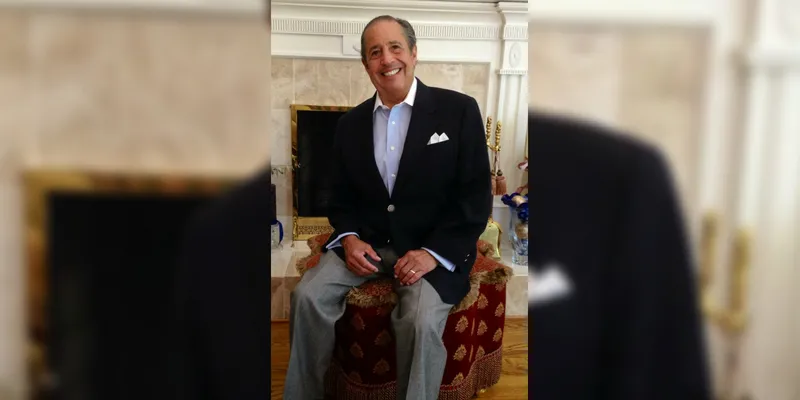Cunha chronicled his ordeal in a new book, “Resolute: My Quest for a New Heart.” Surgeons perform only about 200 heart transplants across the country each year, and finding the right match is agonizingly difficult, complicated and, especially for the patient, painful. The country is divided into 11 zones. If a heart in the right zone with the right blood type is found, then it must be harvested and—for a chance at that heart living again—transplanted within four hours. Many families, however, have difficulty parting with such a vital organ. “In our culture, the heart is revered—at holidays, in our greeting cards and, of course, in our songs. Donors' families might be inclined to donate most organs or body parts, but not the heart,” he says. Given the poor odds of getting a heart, “it often comes down to a miracle.”
Cunha grew up in New York, the son of Portuguese immigrants. Due to family tensions, he left home soon after graduating from high school. For over three years, he worked on Wall Street to make money for college. He attended Ithaca College, where he earned a degree in international relations in three years and then, on scholarship and stipend, attended Notre Dame, where he earned a master's degree. In 1970, he returned to Wall Street as an international banker. In 1996, he became a consultant, first as a partner with Arthur Anderson, then as a partner with Deloitte.
By 2004, however, he had started feeling weak and dizzy and was diagnosed with hypertrophic cardiomyopathy, a condition in which the heart muscle becomes too thick, making it difficult for the organ to pump blood. Cunha would later learn that the condition was “viral”—apparently caused by a virus he contracted somewhere in his extensive international travels.
According to Cunha, after consults with several cardiologists, “I was told I had to change what I was doing or I was going to die.” He retired and moved to the Atlanta area, but his heart continued to deteriorate. In 2008, he got a shocking call from his cardiologist while he was visiting his newborn grandson in New York. His doctor told him that he was in critical condition and needed a defibrillator and pacemaker immediately.
For the next five years, he was in and out of hospitals. Even on vital medication, and relying on a pacemaker to pace his heart and a defibrillator if he went into cardiac arrest, his heart failure gradually progressed from stage 2 to stage 4 (the last stage, or “advanced heart failure”). Finally, in October 2013, he entered end-stage heart failure. For the next few months, he lay in Emory's CCU on life-supporting medication. He was sustained, he says, by the regular visits from family and friends, a sense of humor, and an exceptional team of cardiac nurses.
“At no point was I ever scared,” he says. “I always believed that ‘the most important distance in life was between my ears.’ Also, as part of my faith, I sensed that, if I stayed alive, in due course the red phone would ring for me.”
Finally, on New Year’s Eve, when a cardiologist came in to show him a text, he knew he would finally be going to “the other side.” That would mean either death or a second chance at life. The text simply read: “Cunha’s a go.”
“It was an indescribable feeling,” he says, starting to choke up when he recalled that moment. “It was a New Year's miracle!” Cunha kept his sense of humor to the end, actually singing “The Impossible Dream” as he was wheeled into the operating room. As all in the room held hands and prayed for the donor, his family, Cunha’s doctors and nurses, him and his family, he was placed in a crucifix-like like position and put to sleep. Before losing consciousness, Cunha thanked his surgeons for their skill and asked them “not to screw up my brain.”
After more than 10 hours in surgery, followed by several more in recovery, Cunha was transferred to the ICU. He wasn’t sure if he was alive until, under very close supervision in the ICU, he heard four amazing words from his wife: “Honey, you are safe!”
Since that day four years ago, Cunha has gone through a long and difficult recovery process, gradually watching his body regain its strength. He wrote the book to encourage more people to donate their organs to people in need, he says, and also to give faith to those who might be struggling with life-threatening illnesses, to encourage the latter to be “resolute.”
“I’ve gotten messages from people around the world telling me that their husband, wife or son read my book and it helped them persevere,” he said. In fact, Cunha's book is now required reading for senior students at Emory's Nell Hodgson Woodruff School of Nursing.
Remarkably, Cunha has met, stayed in touch with, and helped the heart donor's mother. After all, “On New Year's Eve 2013, she lost her 20-year-old son”. Cunha added, “Every birthday, holiday etc., my heart donor and his mother are celebrated by my family.”
Cunha's final message: “There are 'red phones' out there, miracles do occur and, along life's quests,' always be ‘in perpetuum gratias’ (forever grateful).”
